World
Top 10 international stories of 2022
Brittney Griner, expansion of marriage rights, and World Pride shocker
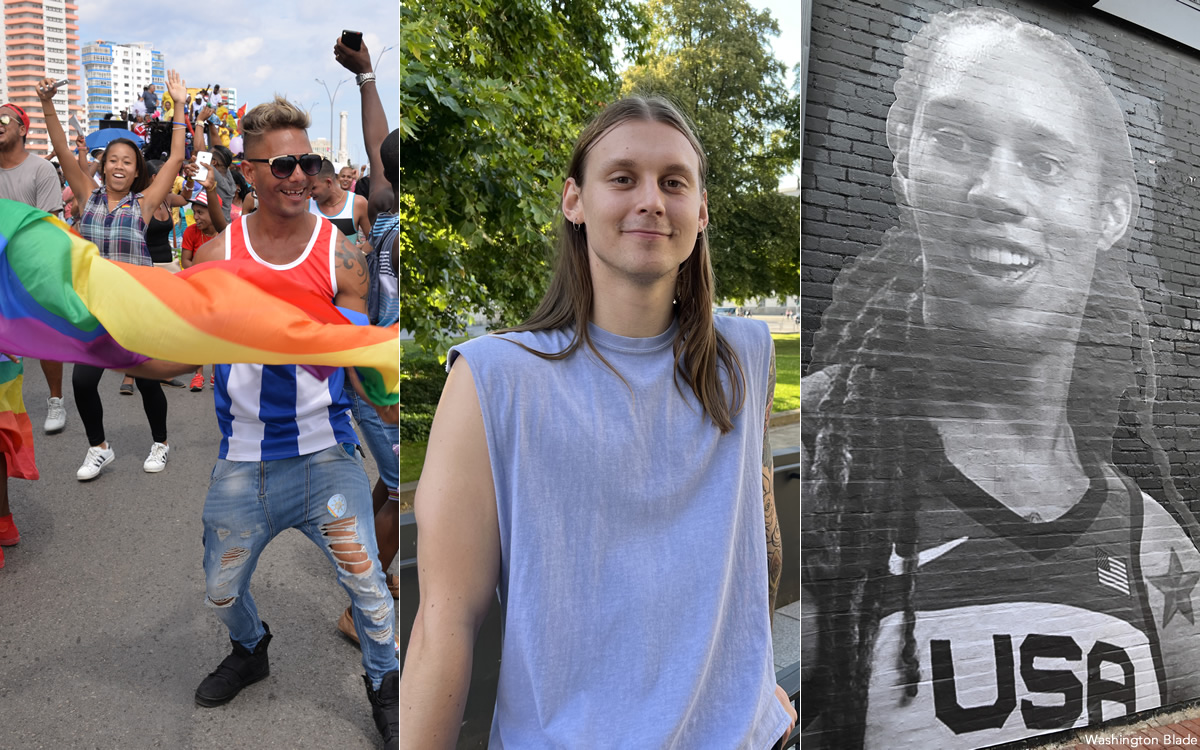
WNBA star Brittney Griner’s arrest in Russia, Brazilian President Jair Bolsonaro’s defeat in his country’s presidential election and the extension of marriage and other rights to LGBTQ and intersex people around the world made headlines over the past year. Here are the top international stories of 2022.
#10 World Pride 2025 cancelled, moved to D.C.
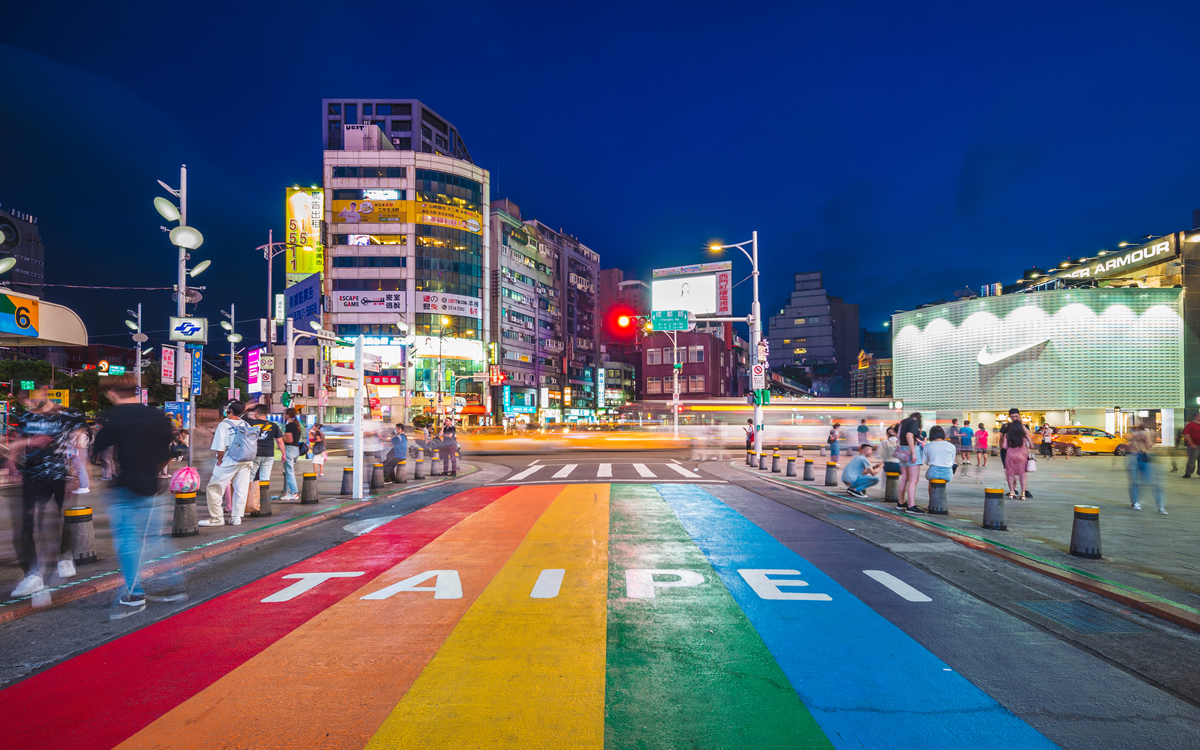
The decision to cancel WorldPride Taiwan 2025 sparked widespread criticism among the island’s LGBTQ and intersex activists.
WorldPride Taiwan 2025 had been scheduled to take place in Kaohsiung, but organizers in August announced its cancellation. The announcement said InterPride, a global LGBTQ and intersex rights group that organizes WorldPride events, had asked organizers to remove Taiwan from the event’s name. InterPride in a subsequent interview with the Washington Blade disputed this claim.
InterPride on Nov. 3 announced D.C. will host WorldPride 2025.
#9 Kenya’s landmark intersex rights law takes effect
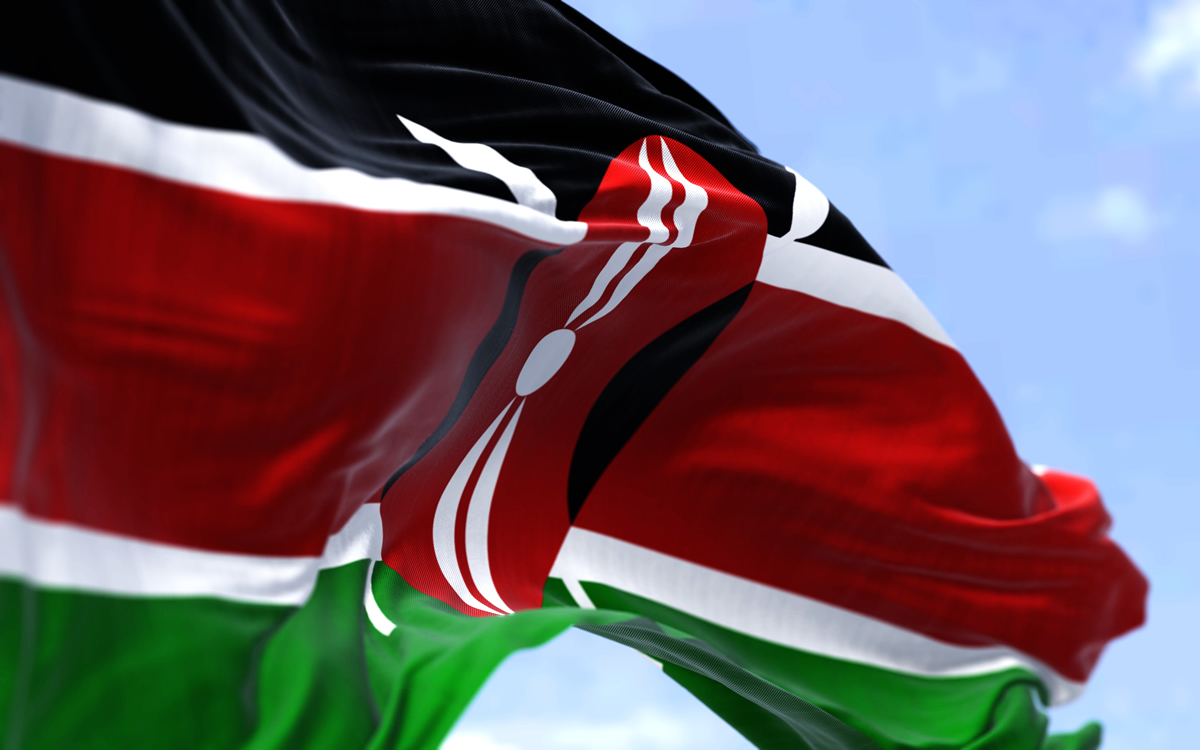
A landmark law that granted equal rights and recognition of intersex people in Kenya took effect in July.
The Children Act 2022 allows intersex people to select an “I” gender marker. The law, among other things, also requires intersex children to have equal access to education, medical care and other basic services and protects them from so-called sex normalization surgeries without a doctor’s recommendation.
The law took effect roughly five years after Kenya became the first country in Africa to count intersex people in a Census.
#8 British government removes trans people from bill to ban conversion therapy
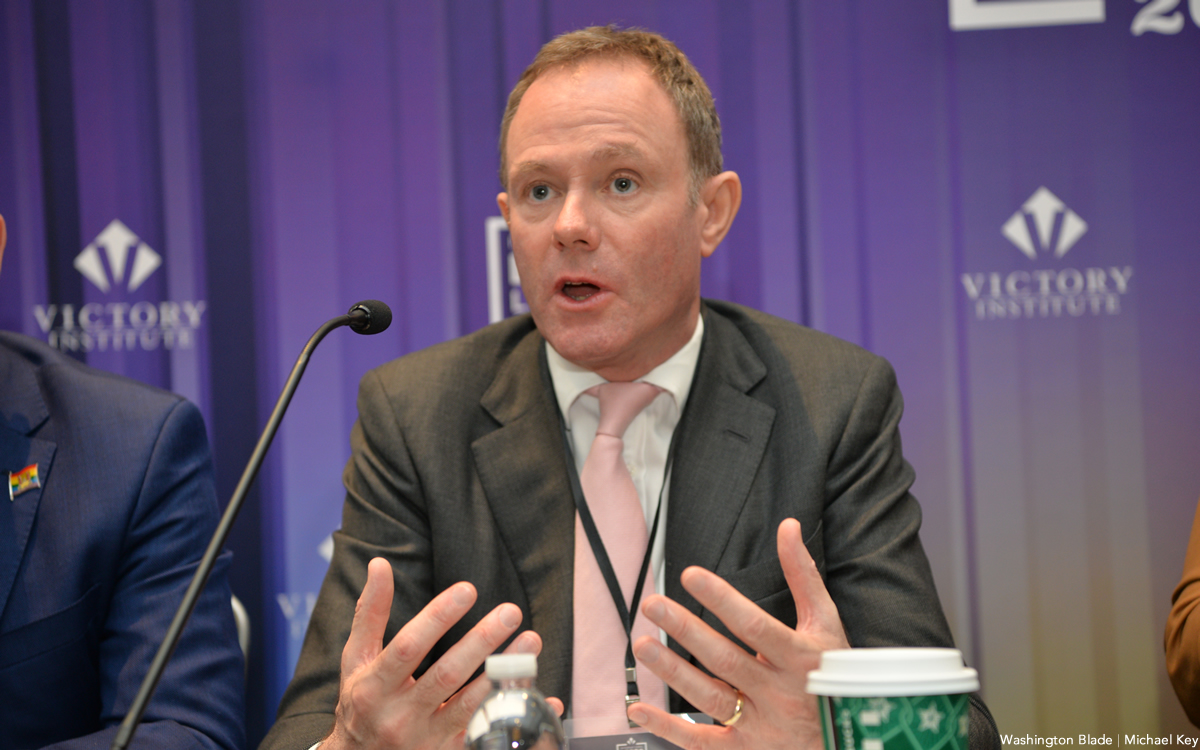
The British government in April cancelled an LGBTQ and intersex rights conference after advocacy groups announced they would boycott it over then-Prime Minister Boris Johnson’s decision to exclude transgender people from a bill to ban so-called conversion therapy.
The Safe to Be Me Conference was to have taken place in London from June 29-July 1, 2022. A British government spokesperson on April 5 confirmed the conference’s cancellation.
Nick Herbert, a member of the British House of Lords who advised Johnson on LGBTQ and intersex issues, in a statement described the conference’s cancellation as “damaging to the government and to the U.K.’s global reputation.” Herbert added it is “also an act of self-harm by the LGBT lobby.”
#7 Former British colonies decriminalize homosexuality
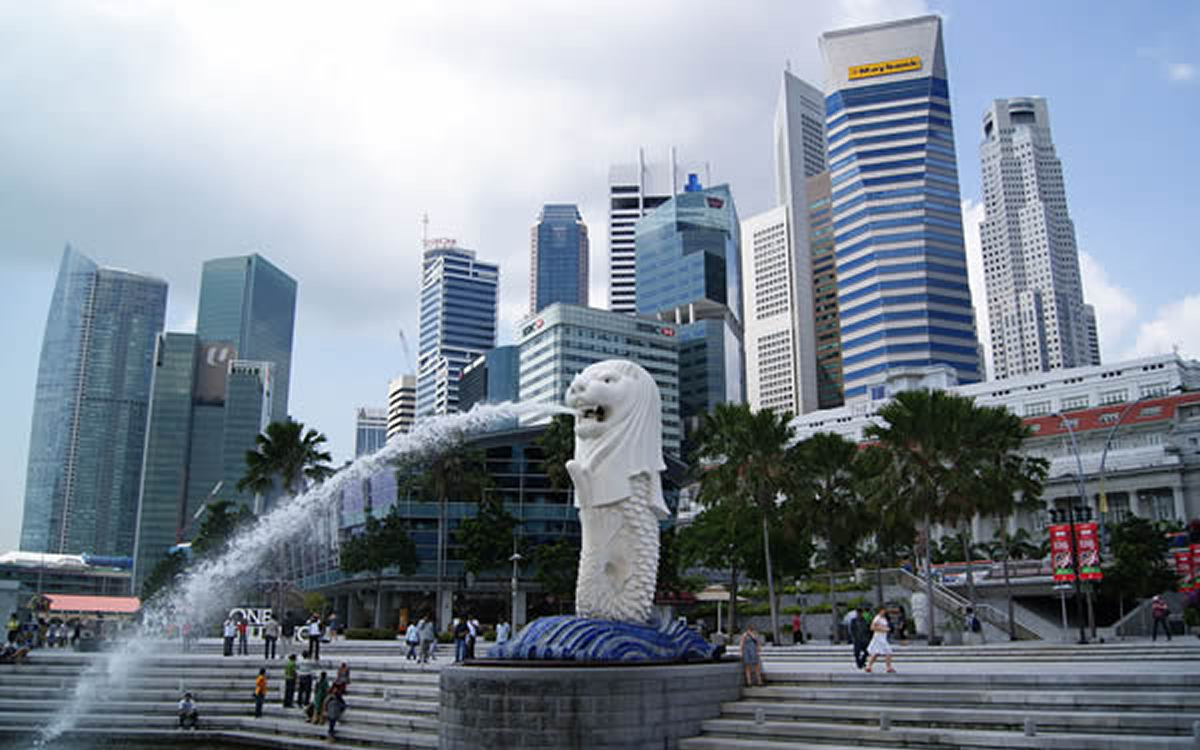
Four former British colonies in 2022 decriminalized consensual same-sex sexual relations.
Lawmakers in Singapore on Nov. 29 repealed Section 377A of the country’s penal code that criminalized homosexuality. Singaporean MPs on the same day also approved an amendment to the city-state’s constitution that defines marriage as between a man and a woman.
The Barbados High Court on Dec. 12 struck down the country’s sodomy law.
A judge on the High Court of Justice in St. Kitts and Nevis on Aug. 29 decriminalized consensual same-sex sexual relations in his country. High Court Judge Marissa Robertson, who sits on the Eastern Caribbean Supreme Court, earlier in the year ruled sections 12 and 15 of Antigua and Barbuda’s Sexual Offenses Act 1995 are unconstitutional.
#6 Marriage equality legalized across Mexico, Cuba, Chile, Switzerland, Slovenia
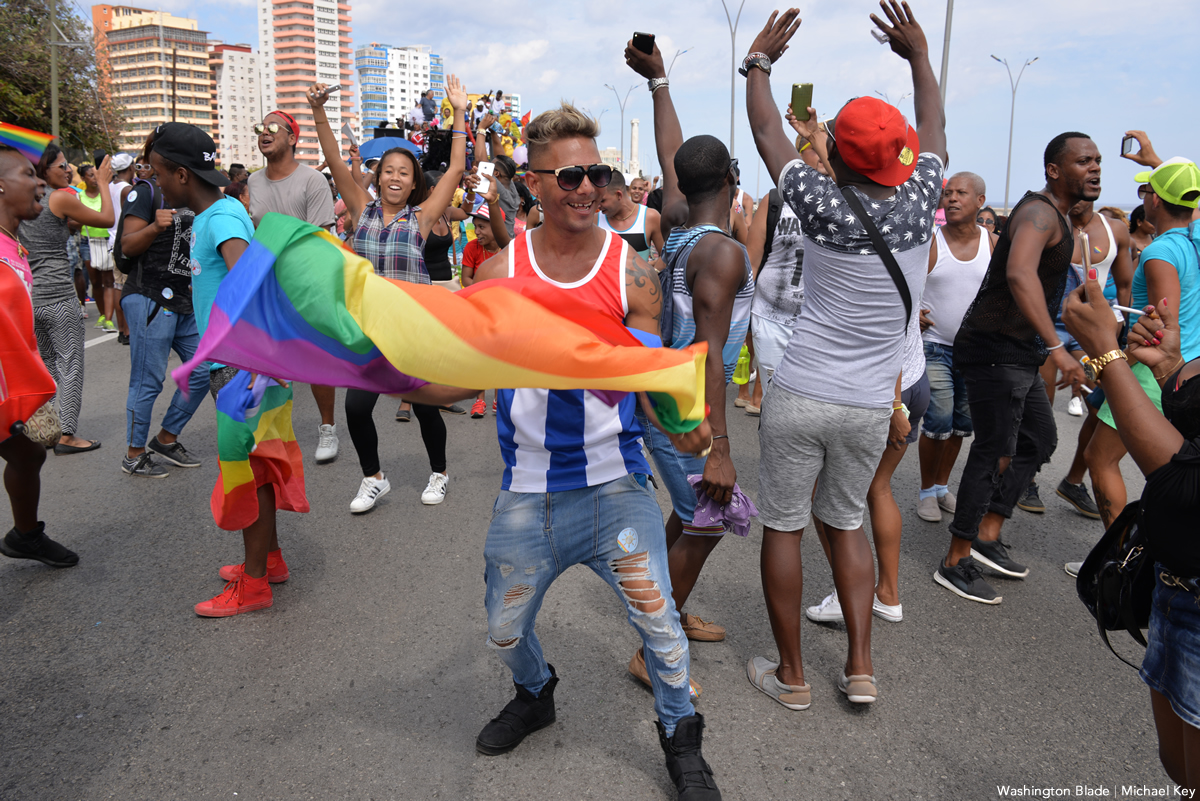
Several countries around the world extended marriage rights to same-sex couples in 2022.
Cubans on Sept. 25 approved a new family code that includes marriage equality.
Lawmakers in Slovenia on Oct. 4 passed a bill that extended marriage and adoption rights to same-sex couples. Switzerland’s marriage equality law took effect on July 1.
Chile’s marriage equality law took effect on March 10. Same-sex couples can legally marry throughout Mexico after lawmakers in Tamaulipas state on Oct. 26 approved a marriage equality bill.
A court on Dec. 6 ruled Aruba and Curaçao must allow same-sex couples to marry.
#5 Brazilian President Jair Bolsonaro defeated
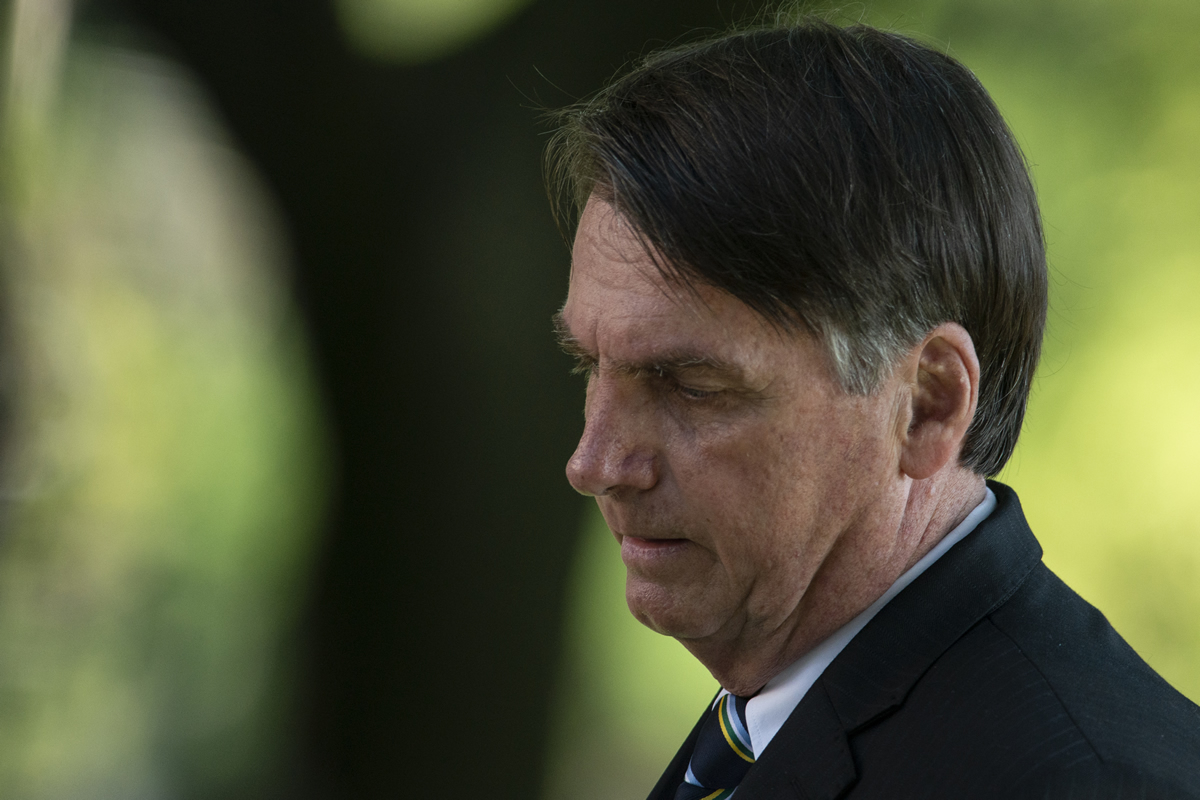
Former Brazilian President Luiz Inácio Lula da Silva on Oct. 30 defeated incumbent President Jair Bolsonaro in the second round of the country’s presidential election.
Da Silva, who was Brazil’s president from 2003-2010, defeated Bolsonaro in the election’s first round that took place on Oct. 2, but neither man received at least 50 percent of the vote.
Bolsonaro, a former congressman and Brazilian Army captain, has faced sharp criticism because of his rhetoric against LGBTQ and intersex Brazilians, women, people of African and indigenous descent and other groups. Bolsonaro, among other things, has encouraged fathers to beat their sons if they are gay and falsely claimed people who are vaccinated against COVID-19 are at increased risk for AIDS.
#4 Marriage equality becomes part of U.S. foreign policy
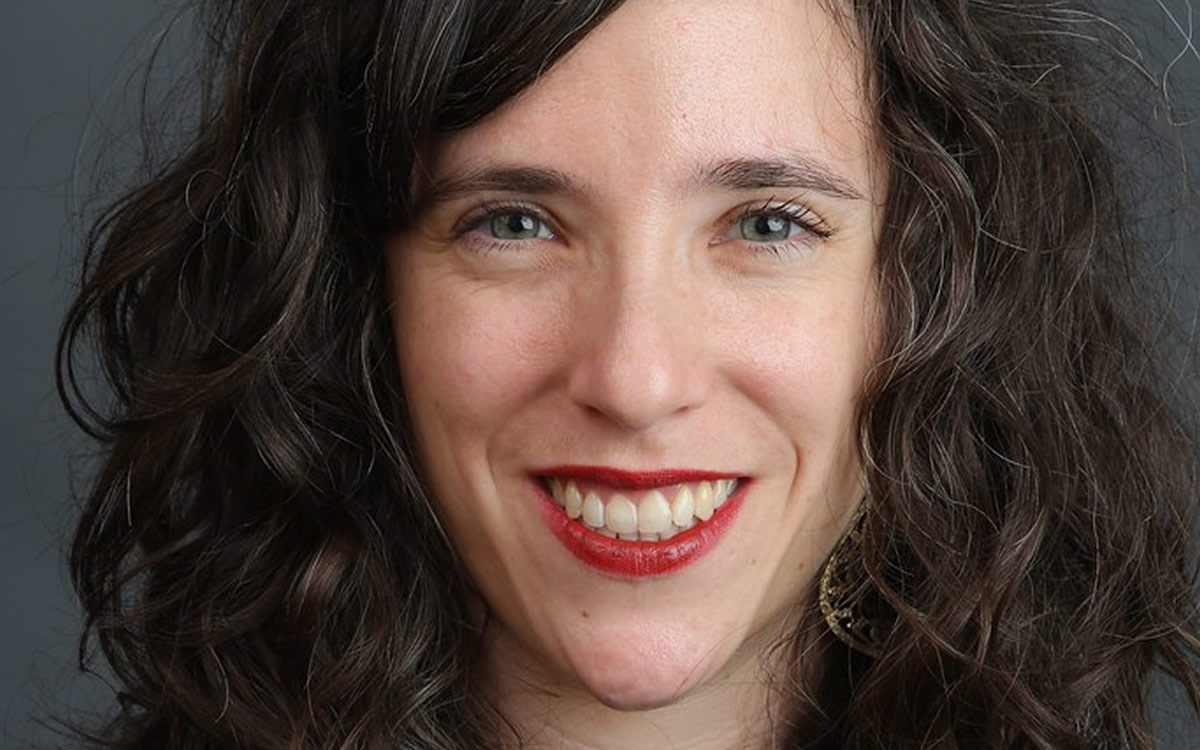
The special U.S. envoy for the promotion of LGBTQ and intersex rights this year confirmed the Biden administration’s support of LGBTQ and intersex rights abroad now includes marriage equality.
“The administration acknowledges that married or not, LGBTQI+ people, couples and their families deserve full equality, access to legal protections and should have their families legally recognized,” said Jessica Stern during an exclusive interview the Blade published on June 1. “All of this is consistent with President Biden’s commitment to LGBTQI+ equality and marriage equality specifically.” President Biden in February 2021 signed a memo that committed the U.S. to promoting LGBTQ and intersex rights abroad as part of his administration’s overall foreign policy. The White House four months later named Stern, who was previously the executive director of OutRight International, to her position.
#3 LGBTQ issues overshadow World Cup
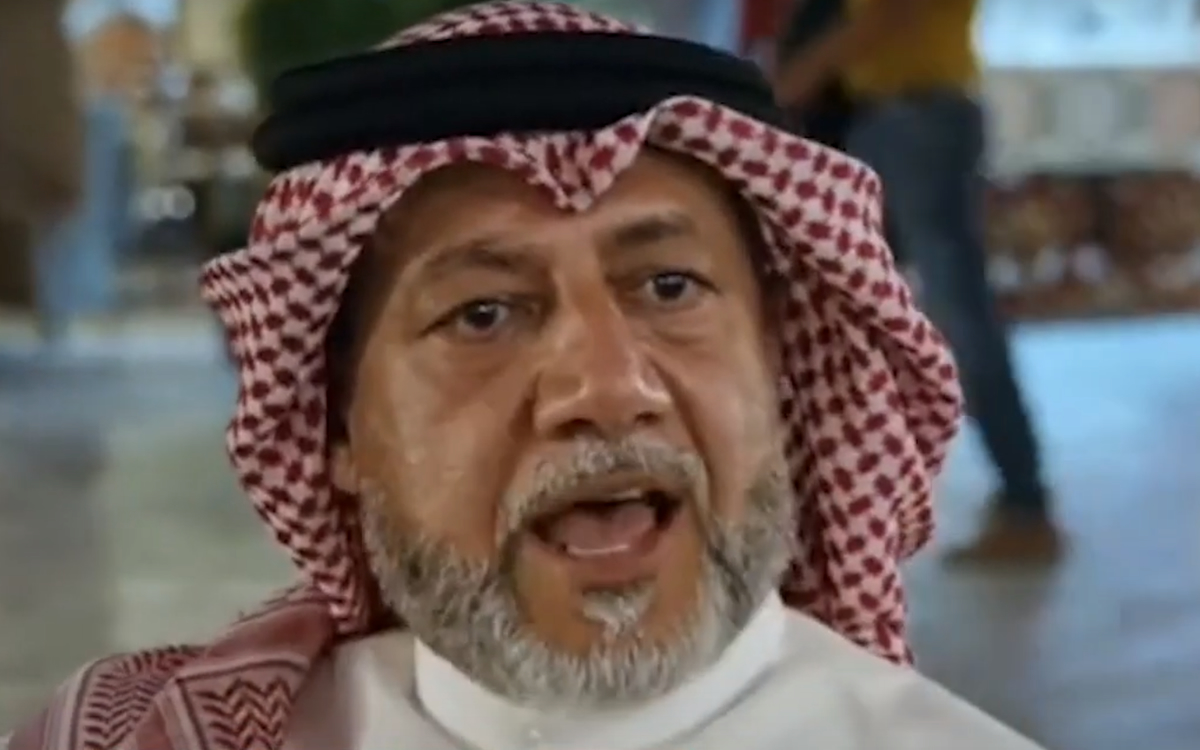
Qatar’s LGBTQ and intersex rights record overshadowed the 2022 World Cup that ended on Dec. 18.
Consensual same-sex sexual relations remain punishable by death in Qatar. A report that Human Rights Watch published in October noted several cases of “severe and repeated beatings” and “sexual harassment” of LGBTQ and intersex people while in police custody from 2019 and September 2022.
World Cup Ambassador Khalid Salman in November described homosexuality as “damage in the mind” during an interview with a German television station. Secretary of State Antony Blinken during a Nov. 22 press conference in Doha, the Qatari capital, criticized FIFA over its threat to sanction European soccer teams if their captains wore “one love” armbands during the World Cup.
#2 LGBTQ Ukrainians flee war
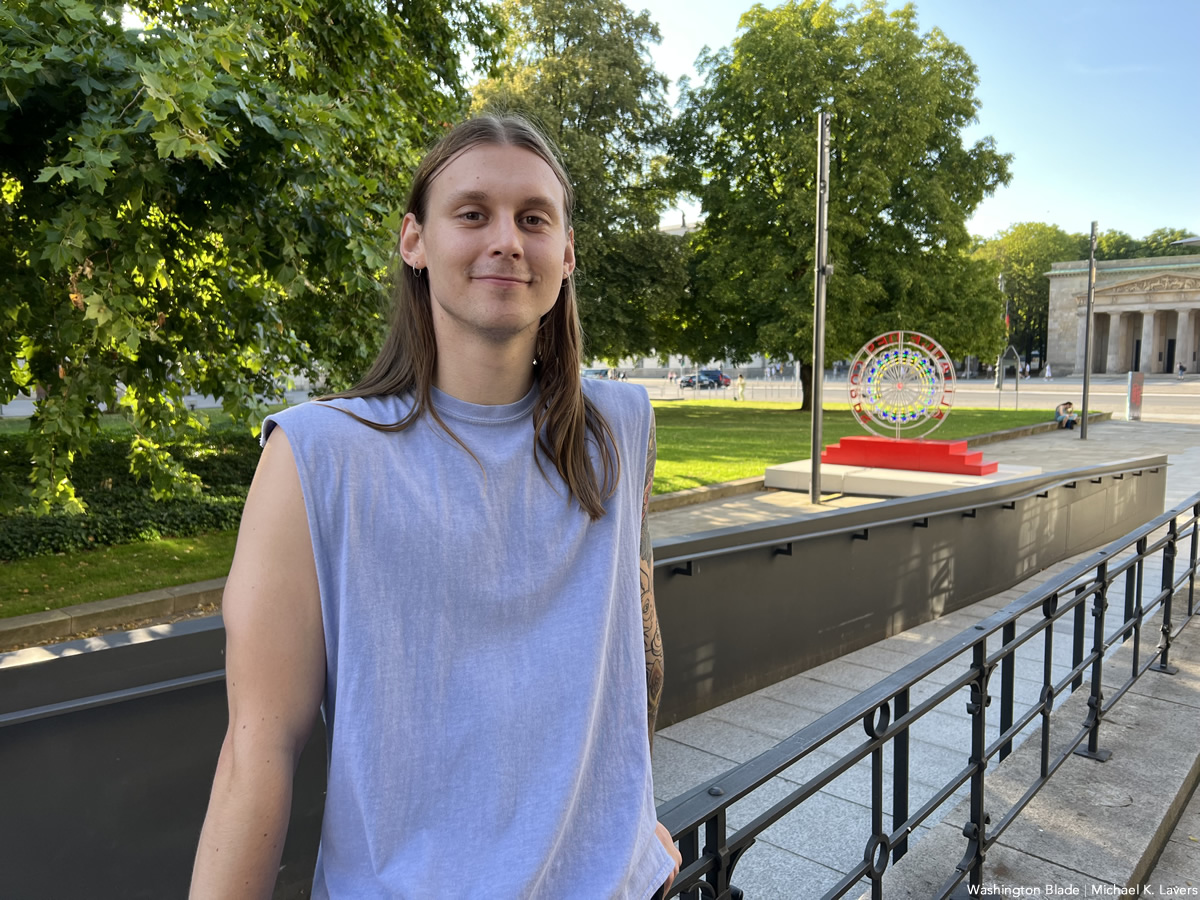
LGBTQ and intersex Ukrainians are among the millions of people who have fled their country after Russia launched its war against it on Feb. 24.
Dmitry Shapoval, a gay man with HIV, lived in Kyiv, the Ukrainian capital, until he swam across a river and entered Poland in March. Shapoval now lives in Berlin with his cat and has begun the process of resettling in Germany.
“I feel very secure here,” Shapoval told the Blade on July 22 during an interview in Berlin.
LGBTQ and intersex activists from Ukraine were among those who took part in Berlin’s Christopher Street Parade that took place a day after Shapoval spoke with the Blade. Kyiv Pride, Kharkiv Pride and Insight are among the myriad organizations that continue to support LGBTQ and intersex Ukrainians who remain in the country.
#1 Brittney Griner detained in Russia

WNBA star Brittney Griner returned to the U.S. on Dec. 9 after Russia released her in exchange for a convicted arms dealer.
Griner — a Phoenix Mercury center and two-time Olympic gold medalist who is a lesbian and married to her wife, Cherelle Griner — had been serving a nine-year prison sentence in a penal colony after a Russian court convicted her on the importation of illegal drugs. Customs officials at Moscow’s Sheremetyevo Airport in February detained Brittney Griner after they found vape canisters with cannabis oil in her luggage.
Russia on Dec. 8 released Brittney Griner in exchange for Viktor Bout, a Russian arms dealer who had been serving a 25-year prison sentence in the U.S.
Ecuador
Justicia reconoce delito de odio en caso de bullying en Instituto Nacional Mejía de Ecuador
Johana B se suicidó el 11 de abril de 2023

A casi tres años del suicidio de Johana B., quien estudió en el Instituto Nacional Mejía, colegio emblemático de Quito, el Tribunal de la Corte Nacional de Justicia ratificó la condena para el alumno responsable del acoso escolar que la llevó a quitarse la vida.
Según información de la Fiscalía, el fallo de última instancia deja en firme la condena de cuatro años de internamiento en un centro para adolescentes infractores, en una audiencia de casación pedida por la defensa del agresor, tres meses antes de que prescriba el caso.
Con la sentencia, este caso es uno de los primeros en el país en reconocer actos de odio por violencia de género, delito tipificado en el artículo 177 del Código Orgánico Penal Integral (COIP).
El suicidio de Johana B. ocurrió el 11 abril de 2023 y fue consecuencia del acoso escolar por estereotipos de género que enfrentó la estudiante por parte de su agresor, quien constantemente la insultaba y agredía por su forma de vestir, llevar el cabello corto o practicar actividades que hace años se consideraban exclusivamente para hombres, como ser mando de la Banda de Paz en el Instituto Nacional Mejía.
Desde la muerte de Johana, su familia buscaba justicia. Su padre, José, en una entrevista concedida a edición cientonce para la investigación periodística Los suicidios que quedan en el clóset a causa de la omisión estatal afirmó que su hija era acosada por su compañero y otres estudiantes con apodos como “marimacha”, lo que también fue corroborado en los testimonios recogidos por la Unidad de Justicia Juvenil No. 4 de la Fiscalía.
Los resultados de la autopsia psicológica y del examen antropológico realizados tras la muerte de Johana confirmaron las versiones de sus compañeras y docentes: que su agresor la acosó de manera sistemática durante dos años. Los empujones, jalones de cabello o burlas, incluso por su situación económica, eran constantes en el aula de clase.
La violencia que recibió Johana escaló cuando su compañero le dio un codazo en la espalda ocasionándole una lesión que le imposibilitó caminar y asistir a clases.
Días después del hecho, la adolescente se quitó la vida en su casa, tras escuchar que la madre del agresor se negó a pagar la mitad del valor de una tomografía para determinar la lesión en su espalda, tal como lo había acordado previamente con sus padres y frente al personal del DECE (Departamento de Consejería Estudiantil del colegio), según versiones de su familia y la Fiscalía.
#AFONDO | Johana se suicidó el 11 de abril de 2023, tras ser víctima de acoso escolar por no cumplir con estereotipos femeninos 😢.
Dos semanas antes, uno de sus compañeros le dio un codazo en la espalda, ocasionándole una lesión que le imposibilitó caminar 🧵 pic.twitter.com/bXKUs9YYOm
— EdicionCientonce (@EdCientonce) September 3, 2025
“Era una chica linda, fuerte, alegre. Siempre nos llevamos muy bien, hemos compartido todo. Nos dejó muchos recuerdos y todos nos sentimos tristes; siempre estamos pensando en ella. Es un vacío tan grande aquí, en este lugar”, expresó José a Edición Cientonce el año pasado.
Para la fiscal del caso y de la Unidad de Justicia Juvenil de la Fiscalía, Martha Reino, el suicidio de la adolescente fue un agravante que se contempló durante la audiencia de juzgamiento de marzo de 2024, según explicó a este medio el año pasado. Desde entonces, la familia del agresor presentó un recurso de casación en la Corte Nacional de Justicia, que provocó la dilatación del proceso.
En el fallo de última instancia, el Tribunal también dispuso que el agresor pague $3.000 a la familia de Johana B. como reparación integral. Además, el adolescente deberá recibir medidas socioeducativas, de acuerdo al artículo 385 del Código Orgánico de la Niñez y Adolescencia, señala la Fiscalía.
El caso de Johana también destapó las omisiones y negligencias del personal del DECE y docentes del Instituto Nacional Mejía. En la etapa de instrucción fiscal se comprobó que no se aplicaron los protocolos respectivos para proteger a la víctima.
De hecho, la Fiscalía conoció el caso a raíz de la denuncia que presentó su padre, José, y no por el DECE, aseguró la fiscal el año pasado a Edición Cientonce.
Pese a estas omisiones presentadas en el proceso, el fallo de última instancia sólo ratificó la condena para el estudiante.
Africa
LGBTQ groups question US health agreements with African countries
Community could face further exclusion, government-sanctioned discrimination

Some queer rights organizations have expressed concern that health agreements between the U.S. and more than a dozen African countries will open the door to further exclusion and government-sanctioned discrimination.
The Trump-Vance administration since December has signed five-year agreements with Kenya, Uganda, and other nations that are worth a total of $1.6 billion.
Kenyan and Ugandan advocacy groups note the U.S. funding shift from NGO-led to a government-to-government model poses serious risks to LGBTQ people and other vulnerable populations in accessing healthcare due to existing discrimination based on sexual orientation.
Uganda Minority Shelters Consortium, Let’s Walk Uganda, the Kenya Human Rights Commission, and the Center for Minority Rights and Strategic Litigation note the agreements’ silence on vulnerable populations in accessing health care threatens their safety, privacy, and confidentiality.
“Many LGBTQ persons previously accessed HIV prevention and treatment, sexual and reproductive health services, mental health support, and psychosocial care through specialized clinics supported by NGOs and partners such as USAID (the U.S. Agency for International Development) or PEPFAR,” Let’s Walk Uganda Executive Director Edward Mutebi told Washington Blade.
He noted such specialized clinics, including the Let’s Walk Medical Center, are trusted facilities for providing stigma-free services by health workers who are sensitized to queer issues.
“Under this new model that sidelines NGOs and Drop-in Centers (DICs), there is a high-risk of these populations being forced into public health facilities where stigma, discrimination, and fear of exposure are prevalent to discourage our community members from seeking care altogether, leading to late testing and treatment,” Mutebi said. “For LGBTQ persons already living under criminalization and heightened surveillance, the loss of community-based service delivery is not just an access issue; it is a full-blown safety issue.”
Uganda Minority Shelters Consortium Coordinator John Grace said it is “deeply troubling” for the Trump-Vance administration to sideline NGOs, which he maintains have been “critical lifelines” for marginalized communities through their specialized clinics funded by donors like the Global Fund and USAID.
USAID officially shut down on July 1, 2025, after the White House dismantled it.
Grace notes the government-to-government funding framework will impact clinics that specifically serve the LGBTQ community, noting their patients will have to turn to public systems that remain inaccessible or hostile to them.
“UMSC is concerned that the Ugandan government, under this new arrangement, may lack both the political will and institutional safeguards to equitably serve these populations,” Grace said. “Without civil society participation, there is a real danger of invisibility and neglect.”
Grace also said the absence of accountability mechanisms or civil society oversight in the U.S. agreement, which Uganda signed on Dec. 10, would increase state-led discrimination in allocating health resources.
Center for Minority Rights and Strategic Litigation Legal Manager Michael Kioko notes the U.S. agreement with Kenya, signed on Dec. 4, will help sustain the country’s health sector, but it has a non-binding provision that allows Washington to withdraw or withhold the funding at any time without legal consequences. He said it could affect key health institutions’ long-term planning for specialized facilities for targeted populations whose independent operations are at stake from NGOS the new agreement sidelines.
“The agreement does not provide any assurance that so-called non-core services, such as PrEP, PEP, condoms, lubricants, targeted HIV testing, and STI prevention will be funded, especially given the Trump administration’s known opposition to funding these services for key populations,” Kioko said.
He adds the agreement’s exclusionary structure could further impact NGO-run clinics for key populations that have already closed or scaled down due to loss of the U.S. funding last year, thus reversing hard-won gains in HIV prevention and treatment.
“The socio-political implications are also dire,” Kioko said. “The agreement could be weaponized to incite discrimination and other LGBTQ-related health issues by anti-LGBTQ voices in the parliament who had called for the re-authorization of the U.S. funding (PEPFAR) funding in 2024, as a political mileage in the campaign trail.”
Even as the agreement fails to safeguard specialized facilities for key populations, the Kenya Human Rights Commission states continued access to healthcare services in public facilities will depend on the government’s commitment to maintain confidentiality, stigma-sensitive care, and targeted outreach mechanisms.
“The agreement requires compliance with applicable U.S. laws and foreign assistance policies, including restrictions such as the Helms Amendment on abortion funding,” the Kenya Human Rights Commission said in response to the Blade. “More broadly, funded activities must align with U.S. executive policy directives in force at the time. In the current U.S. context, where executive actions have narrowed gender recognition and reduced certain transgender protections, there is a foreseeable risk that funding priorities may shift.”
Just seven days after Kenya and the U.S. signed the agreement, the country’s High Court on Dec. 11 suspended its implementation after two petitioners challenged its legality on grounds that it was negotiated in secrecy, lacks proper parliamentary approval, and violates Kenyans’ data privacy when their medical information is shared with America.
The agreement the U.S. and Uganda signed has not been challenged.
European Union
European Parliament resolution backs ‘full recognition of trans women as women’
Non-binding document outlines UN Commission on the Status of Women priorities

The European Parliament on Feb. 11 adopted a transgender-inclusive resolution ahead of next month’s U.N. Commission on the Status of Women meeting.
The resolution, which details the European Union’s priorities ahead of the meeting, specifically calls for “the full recognition of trans women as women.”
“Their inclusion is essential for the effectiveness of any gender-equality and anti-violence policies; call for recognition of and equal access for trans women to protection and support services,” reads the resolution that Erin in the Morning details.
The resolution, which is non-binding, passed by a 340-141 vote margin. Sixty-eight MPs abstained.
The commission will meet in New York from March 10-21.
A sweeping executive order that President Donald Trump signed shortly after he took office for a second time on Jan. 20, 2025, said the federal government’s “official policy” is “there are only two genders, male and female.” The Trump-Vance administration has withdrawn the U.S. from the U.N. LGBTI Core Group, a group of U.N. member states that have pledged to support LGBTQ and intersex rights, and dozens of other U.N. entities.
-

 Baltimore4 days ago
Baltimore4 days ago‘Heated Rivalry’ fandom exposes LGBTQ divide in Baltimore
-

 Real Estate4 days ago
Real Estate4 days agoHome is where the heart is
-

 District of Columbia4 days ago
District of Columbia4 days agoDeon Jones speaks about D.C. Department of Corrections bias lawsuit settlement
-

 European Union4 days ago
European Union4 days agoEuropean Parliament resolution backs ‘full recognition of trans women as women’



















